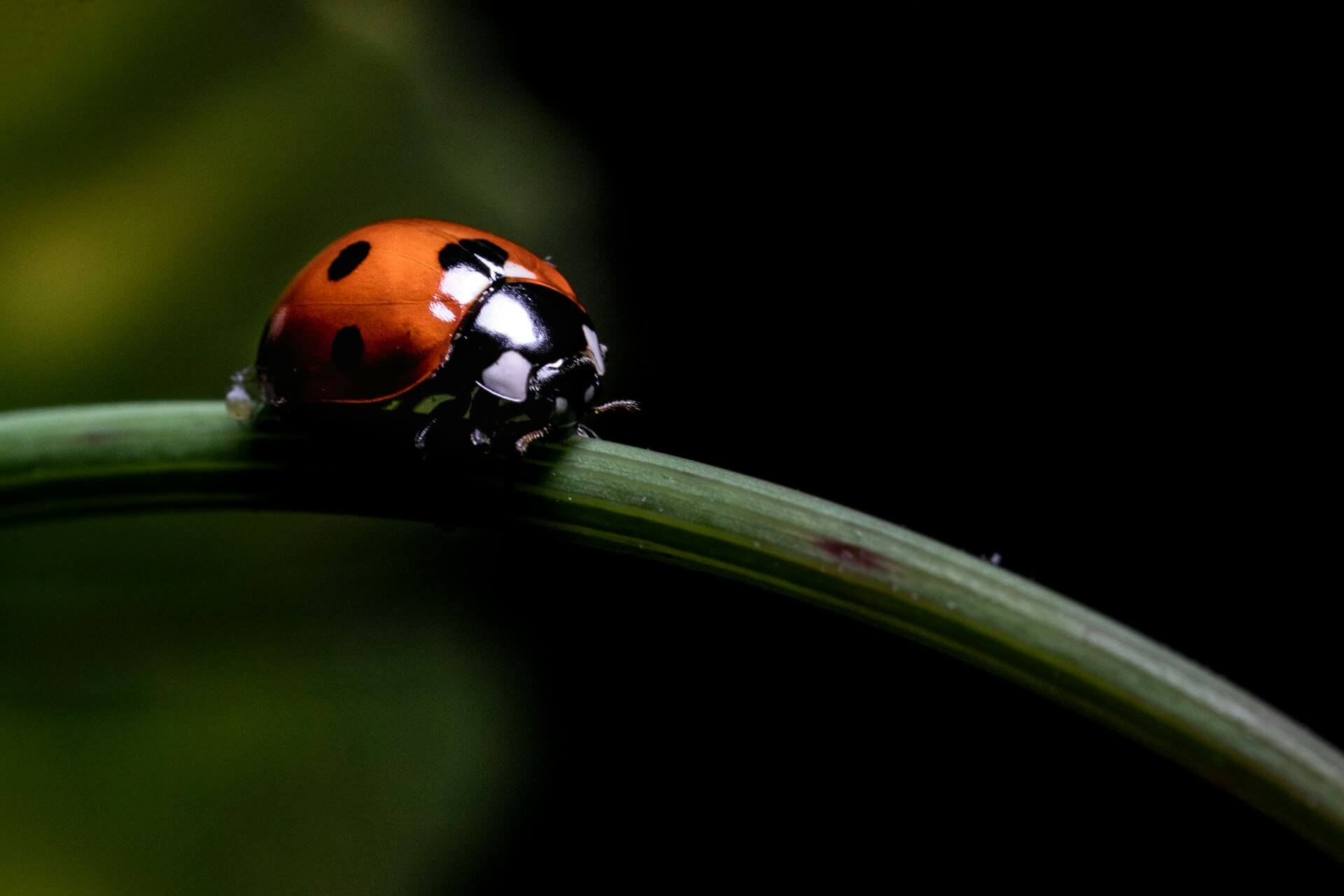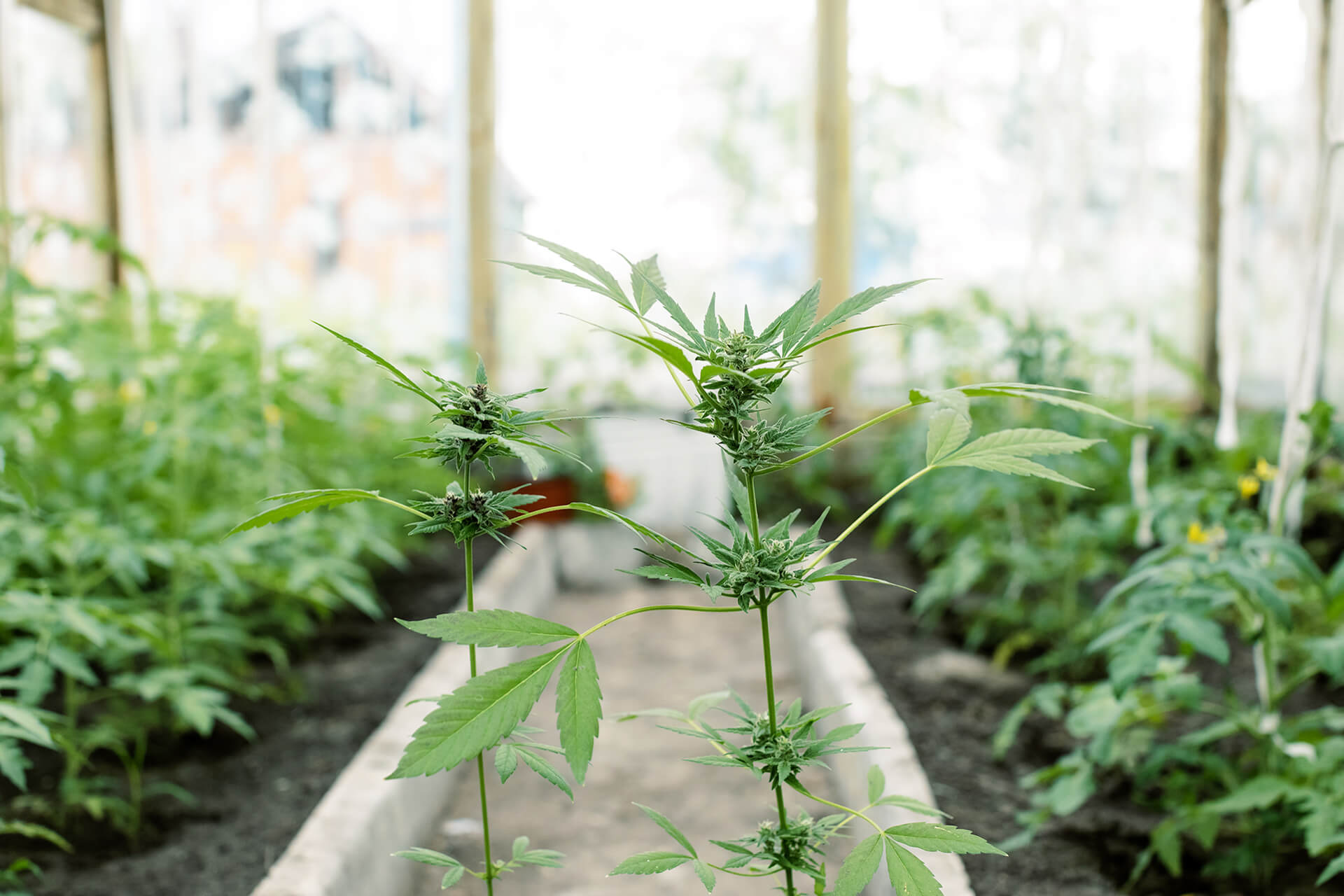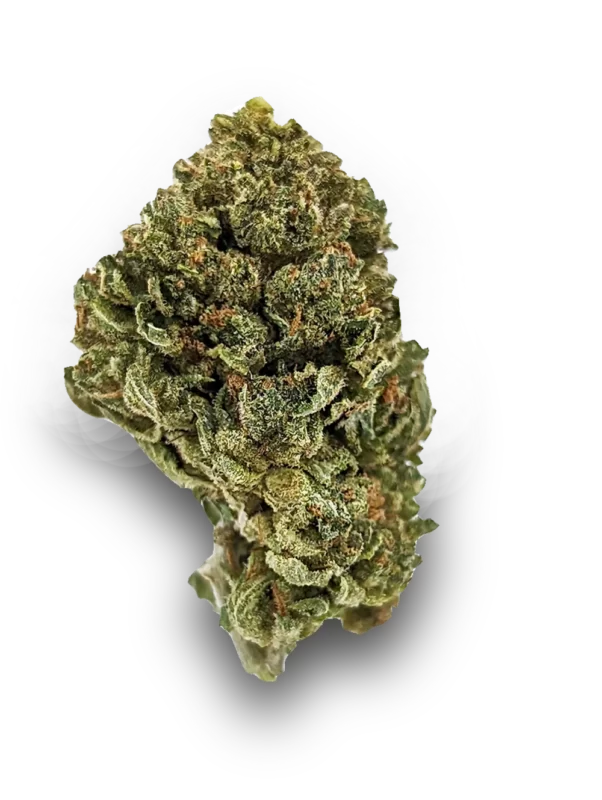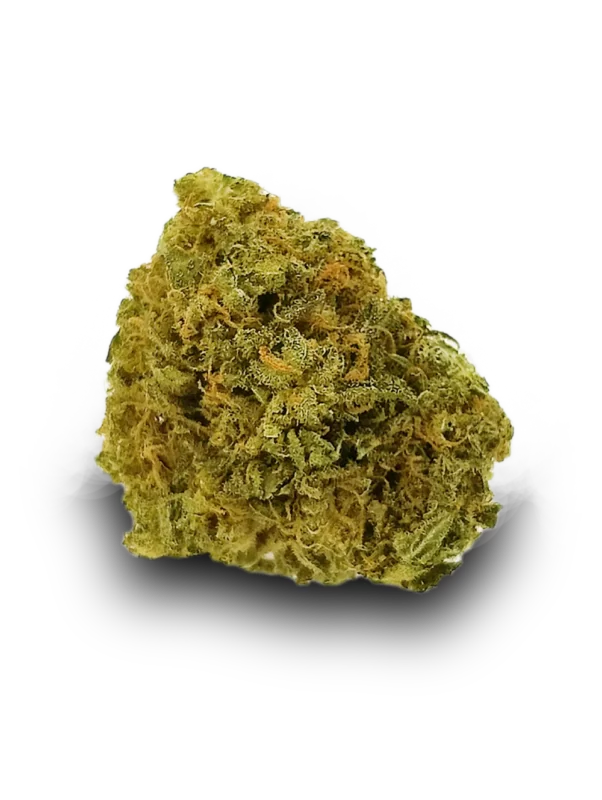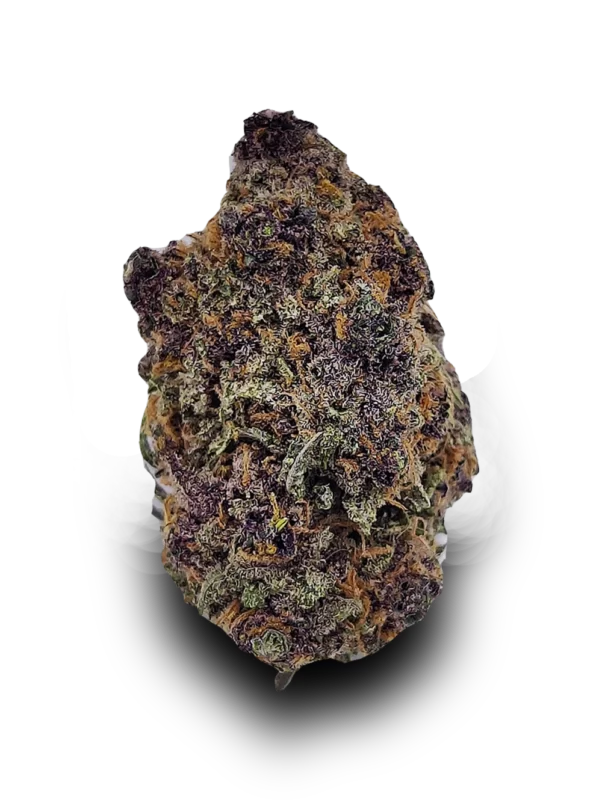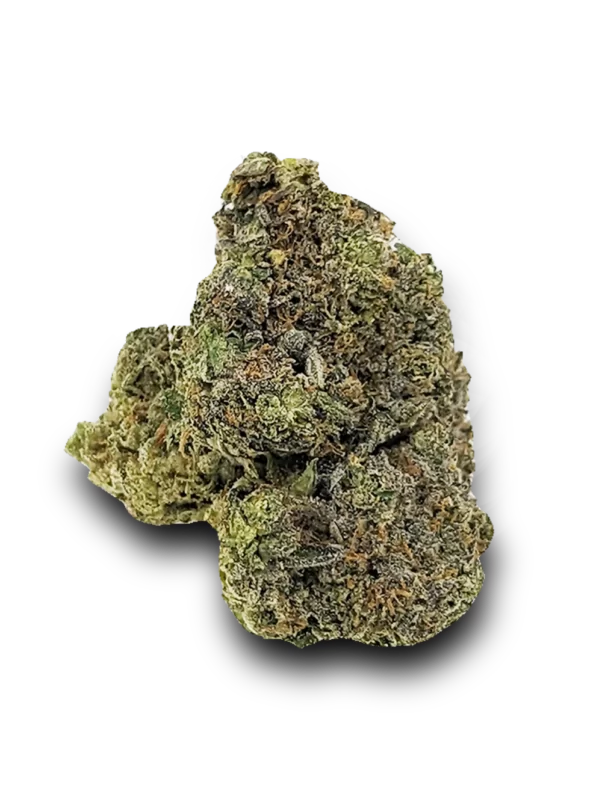According to various studies and statistics, it's estimated that around 30% to 40% of adults experience some form of sleep disturbance or insomnia at some point in their lives. Chronic insomnia, which is characterized by difficulty falling asleep or staying asleep for at least three nights a week over a period of three months or more, affects around 10% of adults. It's important to note that these percentages can vary based on factors such as age, lifestyle, and underlying health conditions.

Introduction:
Sleep is a crucial component of overall well-being, impacting everything from mood to cognitive function. For those who struggle with insomnia or sleep disturbances, finding effective solutions is paramount. One avenue that has garnered increasing attention is the use of cannabis as a potential aid for sleep. In this article, we'll delve into the potential benefits and considerations of using cannabis to manage insomnia and improve sleep quality.
The Role of Cannabis Compounds:
Cannabis contains various compounds, including cannabinoids like THC (tetrahydrocannabinol) and CBD (cannabidiol), which interact with the body's endocannabinoid system. These compounds are believed to influence sleep patterns and sleep-related behaviors.
How does weed affect sleep?
Cannabis, often referred to as weed, can have varying effects on sleep depending on factors such as the strain, dosage, and individual physiology. It's important to note that the effects of cannabis on sleep are complex and can differ from person to person. Here are some ways in which cannabis may affect sleep:
| Effect | Description |
|---|---|
| Inducing Relaxation | Some users report that certain strains of cannabis can help them relax and unwind, potentially making it easier to fall asleep. |
| Pain Relief | Cannabis is known for its analgesic properties, and for individuals experiencing pain that disrupts their sleep, it may offer relief, allowing for more restful sleep. |
| Reducing Anxiety | Cannabis may help alleviate anxiety, which is a common contributor to sleep difficulties. Lowering anxiety levels can lead to improved sleep quality. |
| Sleep Onset | Cannabis may shorten the time it takes to fall asleep, particularly when consumed shortly before bedtime. |
| Stage 4 Sleep | Some studies suggest that cannabis can lead to an increase in deep sleep (stage 4 sleep), which is associated with physical restoration and recovery. |
| REM Sleep | However, cannabis use has also been linked to a reduction in REM (rapid eye movement) sleep, which is associated with dreaming and cognitive processes. |
| Tolerance and Dependence | Regular use of cannabis can lead to tolerance and, in some cases, dependence. This can disrupt natural sleep patterns when trying to reduce or quit cannabis use. |
| Disruption of Sleep Cycle | Cannabis can disrupt the natural sleep cycle, potentially causing fragmented sleep patterns and impacting overall sleep architecture. |
| Daytime Sleepiness | In some individuals, cannabis use before bed can lead to residual daytime sleepiness or grogginess. |
It's important to approach cannabis use for sleep with caution and awareness of potential drawbacks. Consultation with a healthcare professional is recommended, especially if you have underlying medical conditions, are taking medications, or are considering using cannabis as a sleep aid.
As the effects of cannabis on sleep can be complex and vary widely among individuals, it's essential to consider personal experiences and consult credible sources or medical professionals before making decisions about using cannabis to aid sleep.
PROS
Effect | Description |
Inducing Relaxation | Some users report that certain strains of cannabis can help them relax and unwind, potentially making it easier to fall asleep. |
Pain Relief | Cannabis is known for its analgesic properties, and for individuals experiencing pain that disrupts their sleep, it may offer relief, allowing for more restful sleep. |
Reducing Anxiety | Cannabis may help alleviate anxiety, which is a common contributor to sleep difficulties. Lowering anxiety levels can lead to improved sleep quality. |
Sleep Onset | Cannabis may shorten the time it takes to fall asleep, particularly when consumed shortly before bedtime. |
Stage 4 Sleep | Some studies suggest that cannabis can lead to an increase in deep sleep (stage 4 sleep), which is associated with physical restoration and recovery. |
CONS
Effect | Description |
REM Sleep Reduction | Cannabis use has been linked to a reduction in REM (rapid eye movement) sleep, which is associated with dreaming and cognitive processes. |
Disrupted Sleep Cycle | Cannabis can disrupt the natural sleep cycle, potentially causing fragmented sleep patterns and impacting overall sleep architecture. |
Daytime Sleepiness | In some individuals, cannabis use before bed can lead to residual daytime sleepiness or grogginess. |
Tolerance and Dependence | Regular use of cannabis can lead to tolerance and, in some cases, dependence, which can disrupt natural sleep patterns when trying to reduce or quit cannabis use. |
Please note that the table above presents general trends and experiences. The effects of cannabis on sleep can vary widely depending on the individual, the strain of cannabis, the dosage, and other factors. It's important for individuals to consider their own unique circumstances and consult with a healthcare professional if they have concerns about using cannabis for sleep.
What Weed Makes You Sleep?
Certain strains of cannabis are often associated with promoting relaxation and aiding sleep. These strains typically have higher levels of compounds like CBD (cannabidiol) and certain terpenes that are known for their calming effects. Some common strains that are reported to have sedative properties and may help with sleep include:
- Indica Dominant Strains: Indica strains are often considered more relaxing and sedating compared to sativa strains. Examples of indica-dominant strains that may aid sleep include Granddaddy Purple, Purple Kush, and Northern Lights.
- High CBD Strains: Strains with higher CBD content and lower THC levels are often preferred for sleep as CBD is non-psychoactive and may have relaxing effects. Examples of high-CBD strains are ACDC, Charlotte's Web, and Harlequin.
- Strains with Myrcene: Myrcene is a terpene found in some cannabis strains and is associated with sedative effects. Strains with significant myrcene content include Blue Dream, Mango Kush, and 9 Pound Hammer.
- Strains with Linalool: Linalool is another terpene known for its calming properties. Strains like Lavender, LA Confidential, and Skywalker OG have notable linalool content.
It's important to remember that individual responses to strains can vary, and what works for one person may not work the same way for another. If you're considering using cannabis to help with sleep, it's recommended to start with a low dose and consult with a healthcare professional to ensure it's safe and appropriate for your specific situation. Additionally, the effects of cannabis on sleep can depend on factors like dosage, timing of consumption, and individual tolerance levels.

Indica strains are often considered more relaxing and sedating
Terpenes That Help You Sleep
No Data Found
Key Points to Look For
When looking for a strain of cannabis to potentially aid sleep, you'll generally want to consider strains that are known for their relaxing and sedative effects. Here are some key characteristics to look for:
- Indica Dominance: Indica-dominant strains are often associated with relaxation and calmness. They tend to have higher levels of compounds like myrcene and linalool, which have sedative properties.
- High CBD: Strains with higher CBD content and lower THC levels are often preferred for sleep. CBD is known for its calming and anti-anxiety effects without causing significant psychoactive effects.
- Terpene Profile: Look for strains with terpenes like myrcene, linalool, and beta-caryophyllene. These terpenes contribute to the strain's aroma and potential sedative effects.
- Low to Moderate THC: While some THC can be helpful for sleep, high THC levels may lead to increased psychoactivity and potentially disrupt sleep patterns. Aim for strains with moderate THC levels.
- Strains Recommended for Sleep: Some strains that are commonly recommended for sleep include Granddaddy Purple, Bubba Kush, Northern Lights, Purple Kush, and Afghan Kush.
- User Reviews: Reading user reviews and experiences can provide insights into how different strains have affected others' sleep. Keep in mind that individual responses can vary.
- Consult with a Budtender: If purchasing from a legal dispensary, consult with a knowledgeable budtender. They can guide you to strains that are known for their calming effects and help you choose the right product.
- Experiment Gradually: Everyone's body responds differently to cannabis, so it's important to start with a low dose and gradually increase if needed. This allows you to gauge how a strain affects your sleep.
Remember that cannabis affects individuals differently, and what works for one person may not work the same way for another. Additionally, using cannabis for sleep should be approached with caution, especially if you're new to cannabis or have underlying health conditions. It's always a good idea to consult with a healthcare professional before using cannabis as a sleep aid.
Putting it All Together
In conclusion, while cannabis may offer potential relief for individuals struggling with insomnia, it's crucial to approach its use mindfully and responsibly. Prior to incorporating cannabis as a sleep aid, it's advisable to engage in an open discussion with a healthcare professional. This step is particularly important for those with pre-existing medical conditions or who are concurrently using other medications.
As ongoing research delves into the relationship between cannabis and sleep, it's prudent to adopt a comprehensive approach to enhancing sleep quality. Embracing proper sleep hygiene practices, making necessary lifestyle adjustments, and considering the judicious use of cannabis as one possible tool can collectively contribute to achieving improved sleep patterns.
Ultimately, striking the right balance between potential benefits and associated risks is key. Keeping oneself informed, seeking professional guidance, and considering a holistic sleep improvement strategy can empower individuals to make informed decisions that align with their unique needs and goals.





